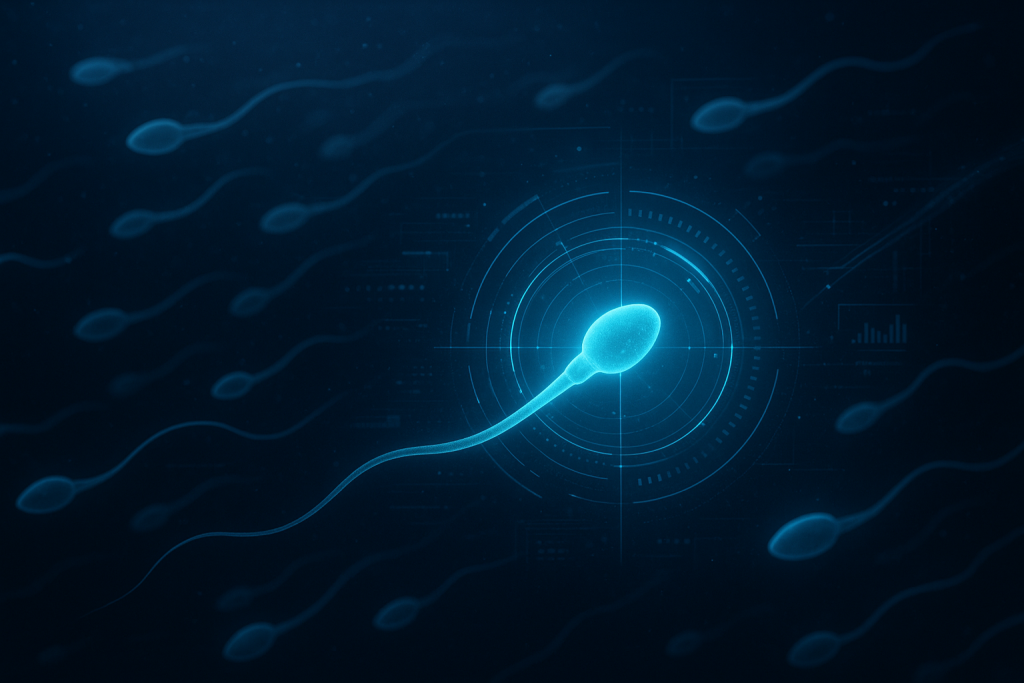Only one healthy sperm is needed to create an embryo, and artificial intelligence can now find it. Researchers at Columbia University’s Fertility Center have reported the first successful pregnancy using an AI-guided method to recover sperm from men with azoospermia —a condition in which semen contains little or no sperm. The case, described in The Lancet, offers new hope for couples affected by severe male-factor infertility.
Male factors account for around 40 % of infertility cases, and about 10 % to 15 % of infertile men have azoospermia. Until now, the available options were limited. Some men undergo surgery to extract sperm directly from the testes, but these procedures are often unsuccessful and can cause vascular problems, inflammation, or a temporary drop in testosterone levels. Other methods rely on technicians manually searching for viable sperm under a microscope, a process that is both slow and costly, and often fruitless.
To address this challenge, the Columbia team developed STAR, short for Sperm Tracking and Recovery. The technique combines high-power imaging, microfluidics, robotics, and artificial intelligence. It scans millions of images from a semen sample in less than an hour and uses AI to identify rare sperm cells. In milliseconds, a robotic arm isolates the healthy cell so it can be used for in-vitro fertilization or preserved for later use.
STAR was tested with a patient who had been trying to start a family for almost twenty years, after multiple failed IVF cycles and surgical sperm extractions. From a 3.5 ml semen sample, the system analyzed 2.5 million images and identified two viable sperm cells. Those two cells were used to create two embryos, leading to a successful pregnancy. Though based on a single case, the result demonstrates the feasibility of this technology to overcome long-standing barriers in reproductive medicine.
Larger clinical studies are now underway to confirm STAR’s safety and effectiveness. But this advance is a clear example of the potential of AI to improve human health and quality of life. It can also reduce the financial and physical burden of assisted reproduction, making treatments less invasive and more accessible. Ethical discussions remain essential, but innovation like this shows how technology can bring new hope to couples who once believed parenthood was out of reach.
Associate Professor at University of Granada


